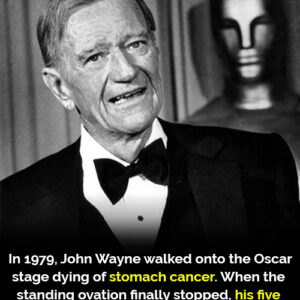Virginia Giuffre, the late sex trafficking survivor, posthumously released her memoir, Nobody’s Girl: A Memoir of Surviving Abuse and Fighting for Justice, on Tuesday. The book contains many accounts of her experiences with Jeffrey Epstein and Ghislaine Maxwell, as well as her encounters with prominent figures such as Prince Andrew and Donald Trump. Giuffre’s memoir provides a deeply personal insight into her life, her abuse, and the difficult journey she undertook to seek justice. Among the recollections, she describes her first meeting with Donald Trump at his Mar-a-Lago resort in Florida, where she worked at the time.
Virginia Giuffre tragically took her own life earlier this year. She was a survivor of sexual abuse and human trafficking at the hands of Epstein and Maxwell, both of whom were later convicted. Her memoir, released after her death, offers a candid account of her experiences, revealing shocking and harrowing details about the people she encountered and the environments in which the abuse occurred. Giuffre’s writing serves as both a personal testament and a public warning about the dangers of ignoring sexual exploitation and trafficking.
Just days before the release of her memoir, Prince Andrew publicly renounced his royal titles amid mounting scrutiny over his connections to Giuffre. According to reports, King Charles had warned Andrew about the potential consequences if he failed to take action regarding the allegations. In a statement, Andrew explained, “In discussion with The King, and my immediate and wider family, we have concluded the continued accusations about me distract from the work of His Majesty and the Royal Family. I have decided, as I always have, to put my duty to my family and country first.
I stand by my decision five years ago to stand back from public life. With His Majesty’s agreement, we feel I must now go a step further. I will therefore no longer use my title or the honours which have been conferred upon me. As I have said previously, I vigorously deny the accusations against me.” Donald Trump has also been named in discussions surrounding Epstein, although he has denied any knowledge of Epstein and Maxwell’s illegal activities. While allegations exist and some files related to Epstein remain unreleased, Trump has not been found guilty of any crimes in connection with Epstein. In her memoir, however, Giuffre recalls an encounter with Trump at Mar-a-Lago in 2000, providing context to the environment in which she and her father were working.
At the time, Giuffre and her father were responsible for maintaining the air conditioning units in hotel rooms and the clay tennis courts at the resort. She recounted that Trump personally gave her a brief tour of the property before introducing her to the hiring manager. After passing both a drug test and a polygraph exam, she was offered employment at Mar-a-Lago. Giuffre described Trump as friendly and approachable during this first meeting. She recalled, “They weren’t friends exactly. But Dad worked hard, and Trump liked that,” adding that he told her, “It was fantastic that you were here.” Trump also engaged her in casual conversation about her experiences, including whether she had babysat and mentioning families who stayed in nearby properties.
Beyond her personal interactions with powerful figures, Giuffre’s memoir focuses on the broader abuse she endured and the systemic issues surrounding sexual trafficking. She emphasized the responsibility of those who were part of Epstein’s circle, writing, “Don’t be fooled by those in Epstein’s circle who say they didn’t know what Epstein was doing. Anyone who spent any significant amount of time with Epstein saw him touching girls in ways you wouldn’t want a creepy old man touching your daughter. They can say they didn’t know he was raping children. But they were not blind. Not to mention the fact that many prominent people were still associating with him years after.” Her words reflect both her anger and her determination to hold those indirectly involved accountable, stressing that ignorance was not a valid excuse.
Giuffre concluded her memoir reflecting on the emotional toll of repeatedly sharing her story, but also expressing a sense of accomplishment and purpose. She wrote, “I don’t regret it, but the constant telling and retelling has been extremely painful and exhausting.” Despite the personal cost, the memoir stands as a testament to her resilience and courage, ensuring her story and message reach the public and continue to advocate for justice for survivors of abuse.





